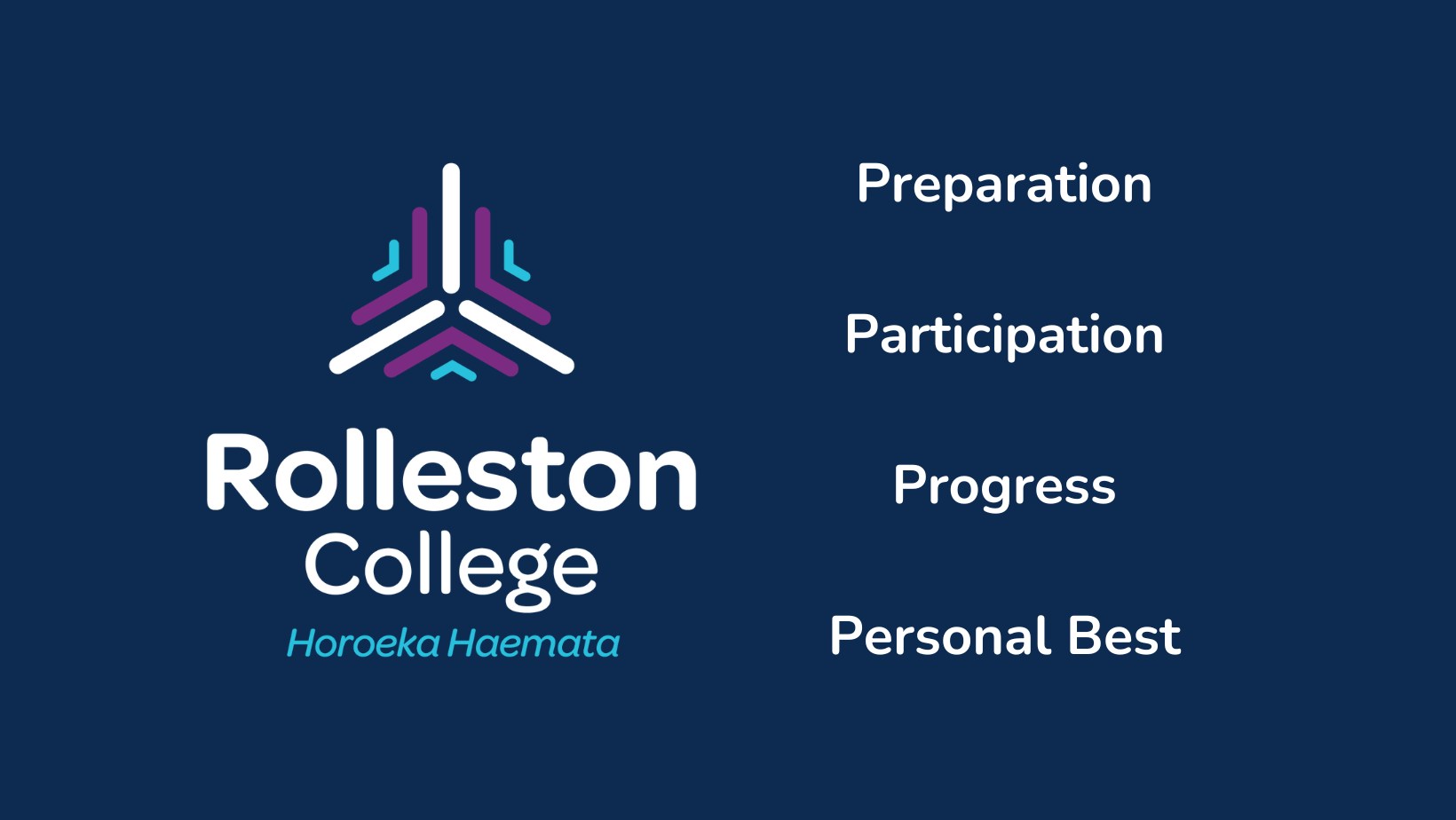
Ready to Achieve: NZQA exam information

Timetable for end of year NCEA exams
The NCEA and New Zealand Scholarship examination sessions are three hours long.
The sessions start at either 9:30 am or 2 pm.
Double check the NCEA exam timetable here and on the homepage of our website.
NZQA student information sheet
Learners can access this information in the following ways:
- NZQA website.
- Learners will get a hard copy with their examination slip.
- A limited number of hard copies will be at Student Services.
Be sure to read this information a number of times prior to the exams.
Below are some key points.
Examination slip
Learners' examination slips will be given out prior to the last day of school.
Admission slips list all the external standards learners are sitting as exams. It does not show externally assessed standards for which learners submit a portfolio or submission/kete manarua.
Check that the details on the admission slip are correct. If there is a mistake, tell your teacher immediately so that your exam entries can be corrected.
The admission slip must be taken to every exam. It must be face up on the learner's desk during all exams.
Do not write on it in any way, at any time.
Keep it in a safe place and do not give it to someone else to look after. The nine-digit number in the shaded box is the learner's national student number (NSN). The exam code (the letter and number) is to help learners find the correct exam room and desk. Learners must sit at the desk they have been allocated.
What learners can and can’t bring to their exams
Learners are responsible for bringing the correct equipment to an assessment and making sure that it is working.
Bring equipment into the assessment room in a clear plastic bag.
Learners can bring:
pens (black and blue colours are allowed)
pencils
an eraser
an approved calculator for subjects where a calculator was used during the year
a clear drink bottle.
Check the assessment specifications for each subject
Learners can confirm what's allowed in an assessment by reading the subject's assessment specifications.
They are listed on each subject page on the NZQA website.
Approved calculators
View the list of list of approved calculators.
Calculators must:
be silent
be hand-held
be non-printing
work from their own power.
Learners cannot keep notes, routines or store files in the calculator memory. Teachers or supervisors will check the calculator memory is cleared before it can be brought into the assessment room.
Emergency evacuation and student pack
Learners are allowed to bring items for an emergency evacuation into the assessment room in a clear, sealable plastic bag. This pack must stay under their chair. Learners must not touch or open it without the permission of the supervisor.
Contents could include:
a mobile phone (switched off) or other electronic device
keys
money
mask or other face covering
bus pass
medicines.
Banned items
Do not bring the following items into an assessment room unless they are sealed in the emergency evacuation pack:
blank paper or refill paper
correcting fluid
books, written notes or electronic notes
mobile phones or pagers
English dictionaries, foreign language dictionaries, or te reo Māori dictionaries or translators
watches of any type (digital or analogue)
any electronic device which has the capability to store, communicate or retrieve information except approved calculators.
Examination procedures (on the day)
All learners should arrive at least 20 minutes before the exam starts so they can find their assessment room.
All learners, including those with special assessment conditions (SAC), are to meet in the plaza.
There will be a whiteboard which clearly shows the location of the assessment rooms being used that day.
If a learner arrives more than 30 minutes after the assessment has started, they will not be able to sit the assessment or enter an assessment room.
Don't forget our key messages!
PREPARATION (Little and often)
‘Try hard’ by ensuring you have updated your study timetable and are sticking to it! Share your study timetable with family so they can support you to stick to it. Studying from NOW is key.
PARTICIPATION (Show up. Try hard)
‘Try hard’ by turning up to tutorials and being on time to all of your classes. Practise past papers and complete tasks set by your teacher.
PROGRESS (Act on feedback)
'Try hard’ by taking on board the feedback your teachers give you in class and in your derived grade report.
PERSONAL BEST (Surround yourself with success)
‘Try hard’ to reach your goals! These exams are taking you one step closer to your future career!
Exam tutorial timetable (pdf).



Address
631 Springston Rolleston Road
Rolleston, New Zealand, 7614
Transforming our world – Takahurihia te ao
Self. Community. Future.